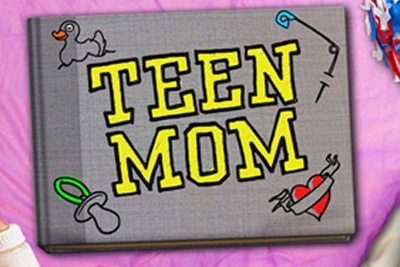‘16 and Pregnant’ May Work, But We Could Do So Much Better
Researchers and the general public may be unable to agree on teen pregnancy shows' contributions to society, but what we all can agree on is that these MTV shows present tired tropes about teen moms that are harmful for young girls.

MTV’s teen pregnancy and parenting reality shows 16 and Pregnant and Teen Mom have long been criticized and celebrated by audiences. While some believe the shows glamorize teenage pregnancy, others say they’re a great example of how difficult it is to be a teen mom, suggesting that the shows could lead to a decrease in pregnancy amongst teens.
This week, academics weighed in on the argument, and it turns out they are just as divided as everyone else. On January 9, Science Daily published findings from a study conducted by Nicole Martins of Indiana University Bloomington and Robin Jensen of the University of Utah. According to their study, during which they interviewed 185 high school students, they found that the more frequently students watched the programs the more likely they were to believe that teenage parents can easily find child care, balance a job and school, live on their own, have access to affordable health care, and finish college. As Science Daily explains, the study is suggesting that “heavy viewers of ‘Teen Mom’ and ‘16 and Pregnant’ have unrealistic views on teenage pregnancy.”
However, in a different study released this month by the National Bureau of Economic Research, researchers suggest that MTV’s pregnancy and parenting teen shows have a direct link to the decline of teenage pregnancy by 6 percent. As Rewire ‘s Martha Kempner explains, economists Melissa Kearney and Philip Levine relied on various data sets, including tweets and Nielsen ratings, to measure the influence of the shows.
Researchers and the general public may be unable to agree on the shows’ contributions to society, but what we all can agree on is that the MTV shows present tired tropes about teen moms that are harmful to teenage mothers and their families. As a former teen mom, I can say from personal experience that these “reality” shows provide a very narrow lens through which they broadcast cautionary tales at the expense of a large population of pregnant and parenting teens. These shows present pregnant and parenting teens at their most vulnerable and parade them around for society to gawk at, judge, shame, and use as examples, while simultaneously “otherizing” teenage pregnancy so much that some viewers might incorrectly believe teenage pregnancy won’t happen to them because they are not like “those girls.”
And it’s not just young people receiving these unrealistic representations of teenage pregnancy and parenting. It’s authority figures, too. As Natasha Vianna explained at a roundtable discussion with Avital Norman Nathman, editor of The Good Mother Myth, “[t]hose gatekeepers—the people who hold our key to success—begin to pity us too. Pity isn’t empowering. Pity isn’t hopeful. Pity encourages privileged people and organizations to make it their mission to vilify us. So this ‘harmless entertainment’ is in fact dangerous.”
The fact of the matter is, sex education and birth control are more effective at stemming the tide of teen pregnancy than any “reality” show ever could. When asked about New York City’s reduction (by almost 30 percent) in teenage pregnancy, Health Commissioner Tom Farley said it was the result of the city making it easier for teens to access contraception. He added that the data “shows that when you make condoms and contraception available to teens, they don’t increase their likelihood of being sexually active. But they get the message that sex is risky.”
City and state programs that are working should be making a larger media splash than studies on television shows that glorify teenage pregnancy and exploit teen parents. It is a disservice to real teenage pregnancy reduction efforts and signals a possible increase in more shaming and stigmatizing ads and public service campaigns by the self-declared “teenage pregnancy prevention” organizations and people.
Suggesting shows like Teen Mom will help reduce teenage pregnancy prevents us from doing the real work required to break the cycle, including providing sex education, access to sexual health services, and more resources for pregnant and parenting teens that can make them feel empowered and less isolated when they find themselves in these situations, as I once experienced.
If educators, parents, policy makers, and nonprofits are serious about reducing teenage pregnancy they need to get real and realize teens are sexual beings. Like New York City demonstrated, when young people have the right information and resources at their disposal, they are more likely to make safer, well-informed decisions about sex.

